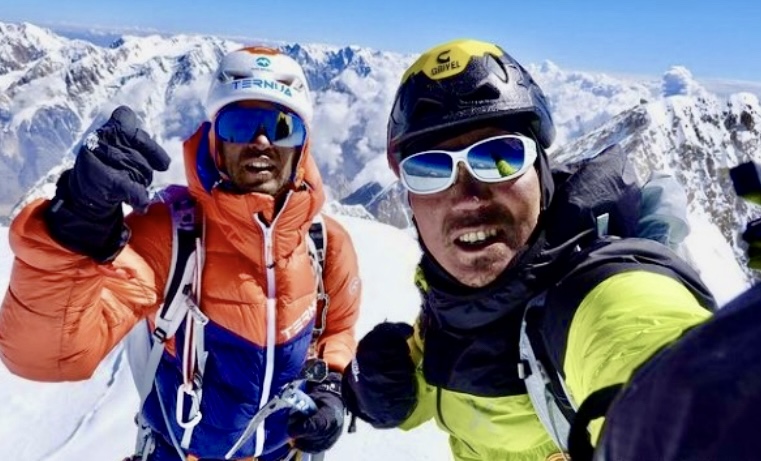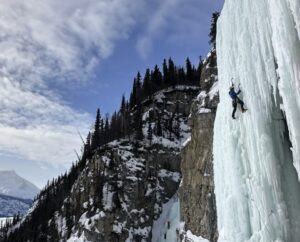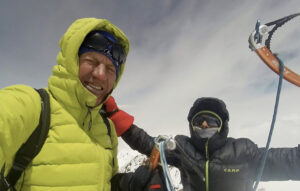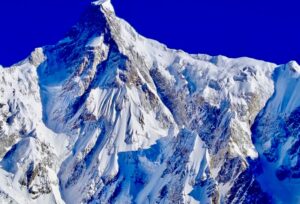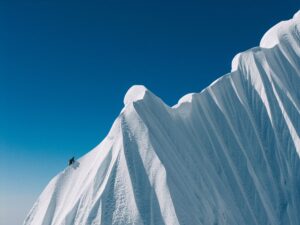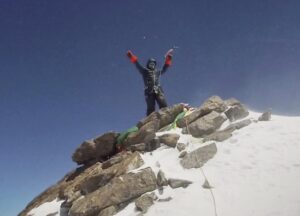A couple of weeks ago, the international climbing community heard that Kazuya Hiraide (45) and Kenro Nakajima (39) had gone missing on the West Face of K2.
Shortly after, even worse news arrived. The climbers had fallen from around 7,000m while trying to open a new alpine-style route on the West Face. A Pakistani army helicopter subsequently spotted Hiraide and Nakajima from the air, but they lay motionless in the snow.
With fear but still some hope, their home team tried to arrange a rescue. Yet the two climbers were in dangerous terrain, full of crevasses. Eventually, the rescue was called off.
Pure alpinism, from the heart
Hiraide and Nakajima were well-regarded not just because of their climbs and awards. They shared their love for the mountains naturally and reported on their climbs honestly and directly.
Two years ago, ExplorersWeb interviewed Hiraide. He shared his philosophy, why he gravitated toward unclimbed routes, and his experience on several of the world’s most difficult peaks.
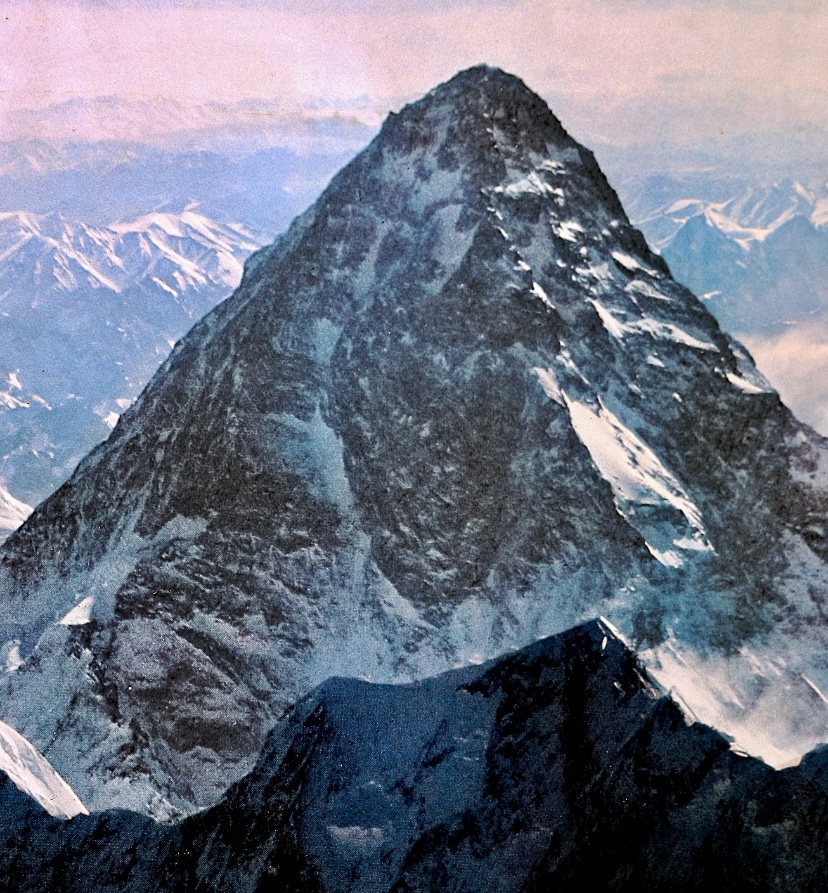
The West Face of K2. Photo: Pavel Shabalin
But before the pair turned to exploratory alpine-style routes, they also climbed on some of the giants. Hiraide summited Everest three times, as well as Gasherbrum I, but he did not like to mention those climbs. On these 8,000m peaks, he was there as a cameraman. “I was working, not pursuing my dreams,” he explained.
Meanwhile, Nakajima summited six of the Seven Summits, as well as Cho Oyu, Everest, and Manaslu.
Pursuing their dreams
Before teaming up, both climbers assembled strong climbing resumés.
In 2001, Hiraide ascended to the western summit of 7,381m Kula Kangri in Tibet.
On Sept. 5, 2005, Hiraide and his partner Kei Taniguchi carried out the second ascent of the southeast ridge of 7,546m Muztagh Ata on the northern edge of the Tibetan Plateau. Hiraide carried skis up the southeast ridge and used them to descend the west flank.
The same year, just after Muztagh Ata, Hiraide and Taniguchi climbed 6,543m Shivling via its north face and northwest ridge.
In 2008, Hiraide and Taniguchi made the first ascent of the southeast face of 7,756m Kamet in India, which won them the Piolet d’Or.
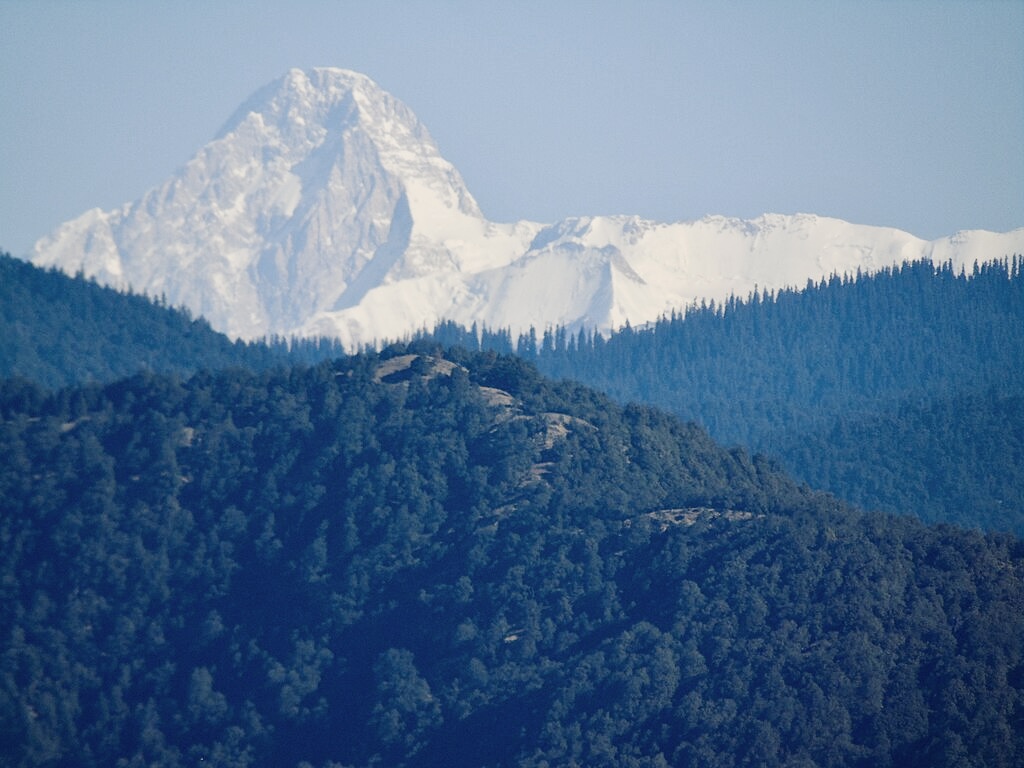
Kamet. Photo: Rohit Gosain
In 2009, Hiraide and Taniguchi attempted a new route on the south summit of 7,143m Gaurishankar by the northeast face.
Two years later, Hiraide and Taniguchi opened a new route on 7,694 Naimona’nyi (aka Gurla Mandata) in the Nalakankar Himal in Tibet. They ascended via the south face and carried out the first traverse of the mountain.
Hiraide made several other committed ascents, on 7,010m Khan Tengri in the Tian Shan (2012), 7,266m Diran in the Karakoram (2013), and 7,132m Api in far western Nepal (2015).
Shispare
Hiraide saw 7,611m Shispare for the first time in 2002. He knew he would need more experience before trying it.
Five years later, in 2007, Hiraide made his first attempt with Yuka Komatsu. They ascended via a new line up the middle of the northeast face. Unstable snow forced them to turn around at 6,000m.
In 2012, Hiraide returned to Shispare with Takuya Mitoro to attempt the peak’s southwest face, but bad weather stopped them at 5,350m.
In 2013, Hiraide made a third attempt, this time with Kei Taniguchi. Again, he tried the southwest face. “A serac high on the route terrified us, so we retreated at 5,700m. I was despairing and pretty sure I wouldn’t return to Shispare,” Hiraide told the American Alpine Journal.
Taniguchi’s Death
Hiraide’s partner Taniguchi died on Dec. 22, 2015, in a mountaineering accident on Mount Kuro in Japan.
“The sudden tragedy made me question my motivation for mountaineering. At the end of much pondering, I decided to continue climbing, with her climbing alongside in spirit,” Hiraide wrote in the American Alpine Journal.

Kei Taniguchi at Diran Base Camp. Hiraide buried this picture in the snow on Shispare’s summit. Photo: Kazuya Hiraide
Nakajima, full of energy
Nakajima’s interest in mountaineering came from his father, a good climber who died when Nakajima was just five years old.
As a student, Nakajima traveled to the Himalayas three times. In 2007, he made the first ascent of the east face of 6,905m Panbari Himal with a university team.
In 2008, Nakajima and Hiroki Yamamoto made the first authorized ascent of 6,196m Dingjung Ri South in the Rolwaling Himal.
From 2008, Nakajima worked as a mountain tour guide and began working as a cameraman. In 2013, he attempted to climb 7,282m K6 (also known as Baltistan Peak) in Pakistan, in alpine style.
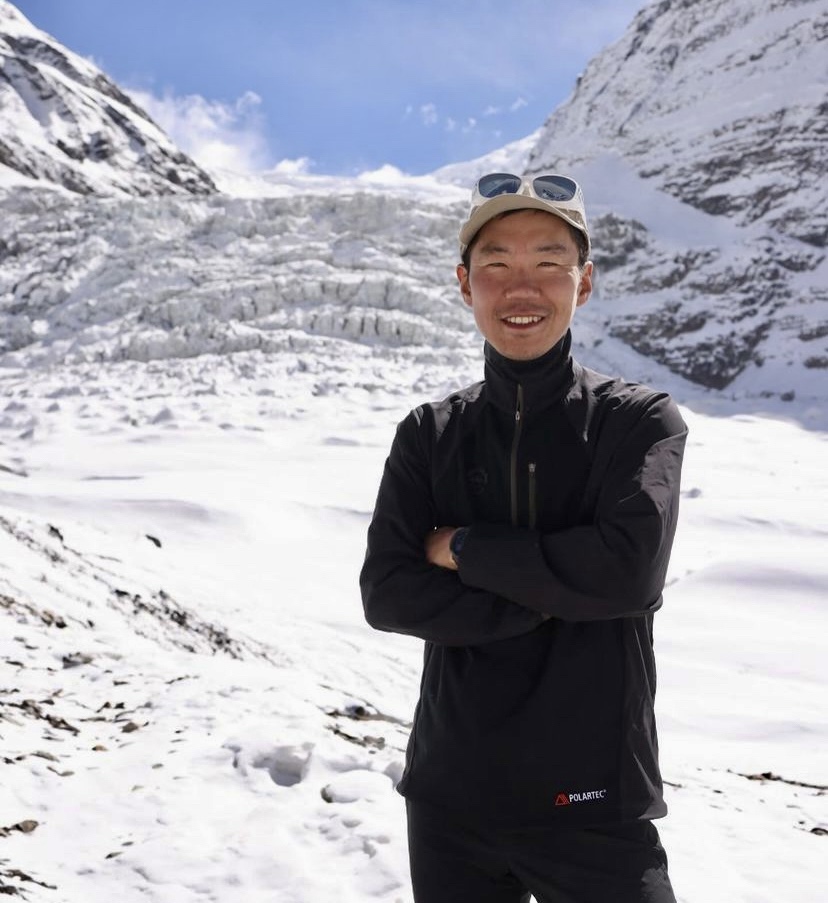
Kenro Nakajima. Photo: Kenro Nakajima
The Hiraide/Nakajima partnership
Hiraide and Nakajima started to climb together in 2016. That autumn, they opened a new route on 7,095m Loinbo Kangri in Tibet, in a clean, direct line via the north-northwest face.
Then in August 2017, Nakajima accompanied Hiraide back to Shispare, where they completed the first alpine-style ascent of Shispare’s northeast face (2,700m, WI5 M6). After topping out, the pair descended the east ridge and the north spur. They called their new route Shukriya, which means “thanks” in Urdu. The duo won a Piolet d’Or for their climb.
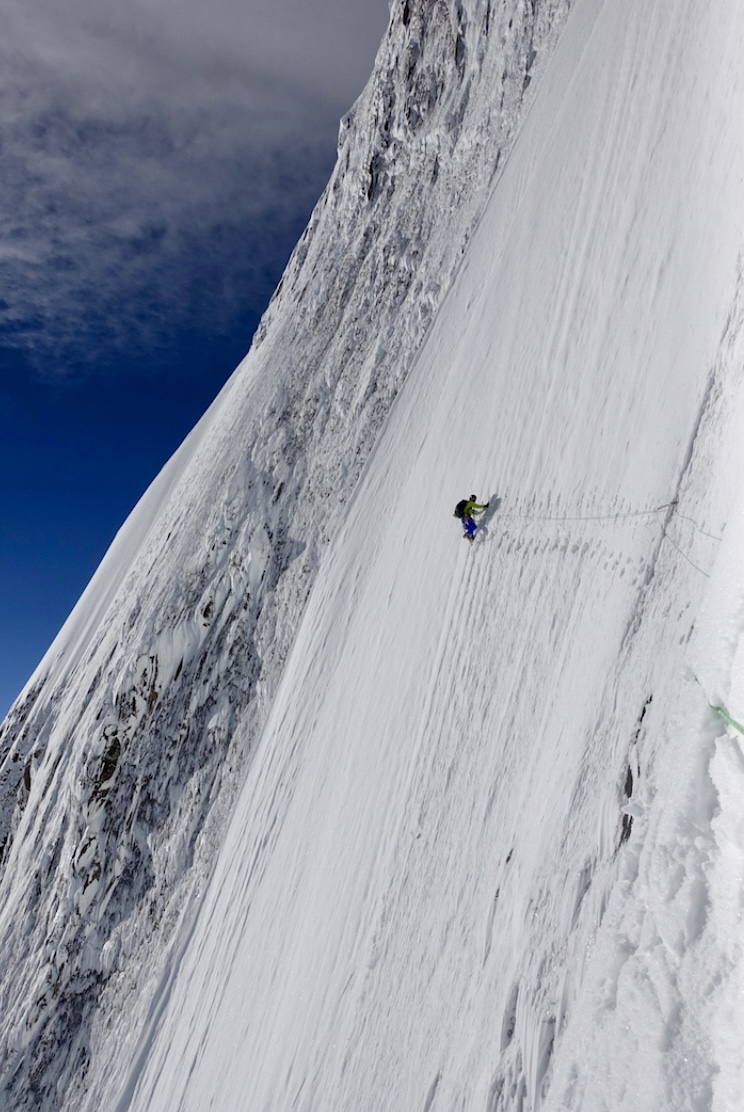
Kenro Nakajima traverses steep ice toward the route’s crux at about 6,500m on Shispare. Photo: Kazuya Hiraide
Rakaposhi and Karun Koh
In 2019, while waiting for a Tirich Mir permit (that they never received that year), Hiraide and Nakajima went to the south side of 7,788m Rakaposhi. The south side had remained untouched, though some teams had scouted potential routes. Hiraide and Nakajima ascended the south face and southeast ridge, topping out on July 2. For this, they won another Piolet d’Or.
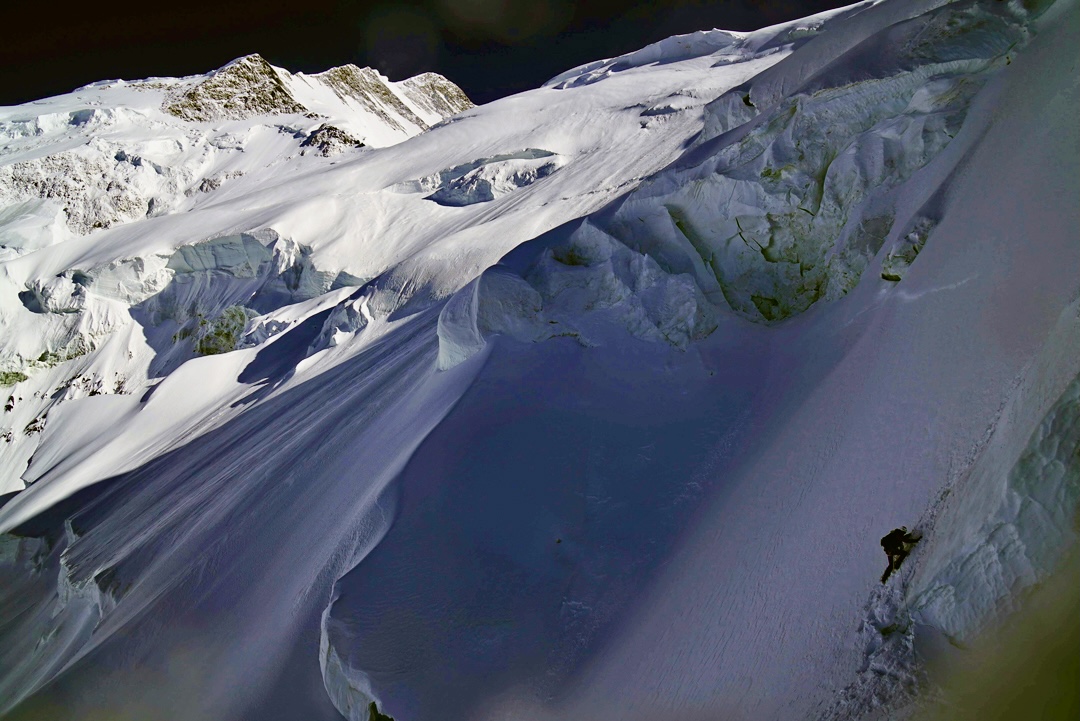
Kazuya Hiraide on the south face of Rakaposhi. The southeast ridge is visible in the top left. Photo: Kenro Nakajima
In 2022, Hiraide and Nakajima completed the first ascent of the northwest face of Karun Koh. It was only the second ascent of the mountain.
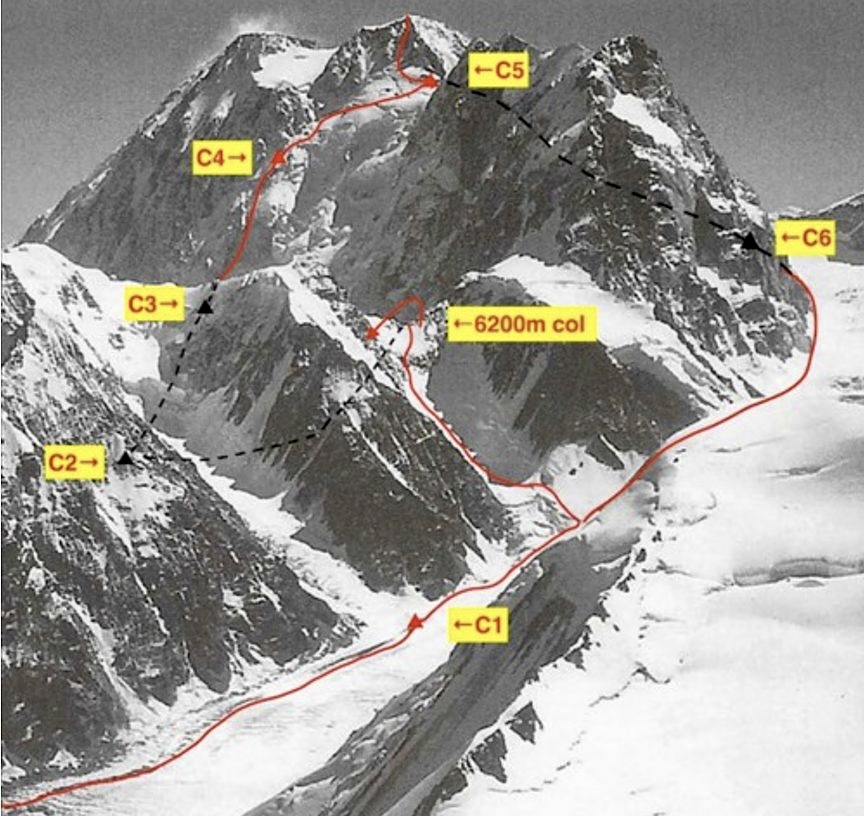
The ‘Secret Line’ on the north face of Tirich Mir. Photo: Kazuya Hiraide/Kenro Nakajima
Tirich Mir
In 2023, Hiraide and Nakajima finally received a climbing permit for Tirich Mir. They made the first ascent of its north face. Their route, Secret Line, stretched 2,000m from the Lower Tirich Glacier to the summit.
Hiraide and Nakajima will be missed. Their uncompromising excellence made them two of the most important alpinists of this young century.

Kazuya Hiraide and Kenro Nakajima. Photo: Kazuya Hiraide/Kenro Nakajima
